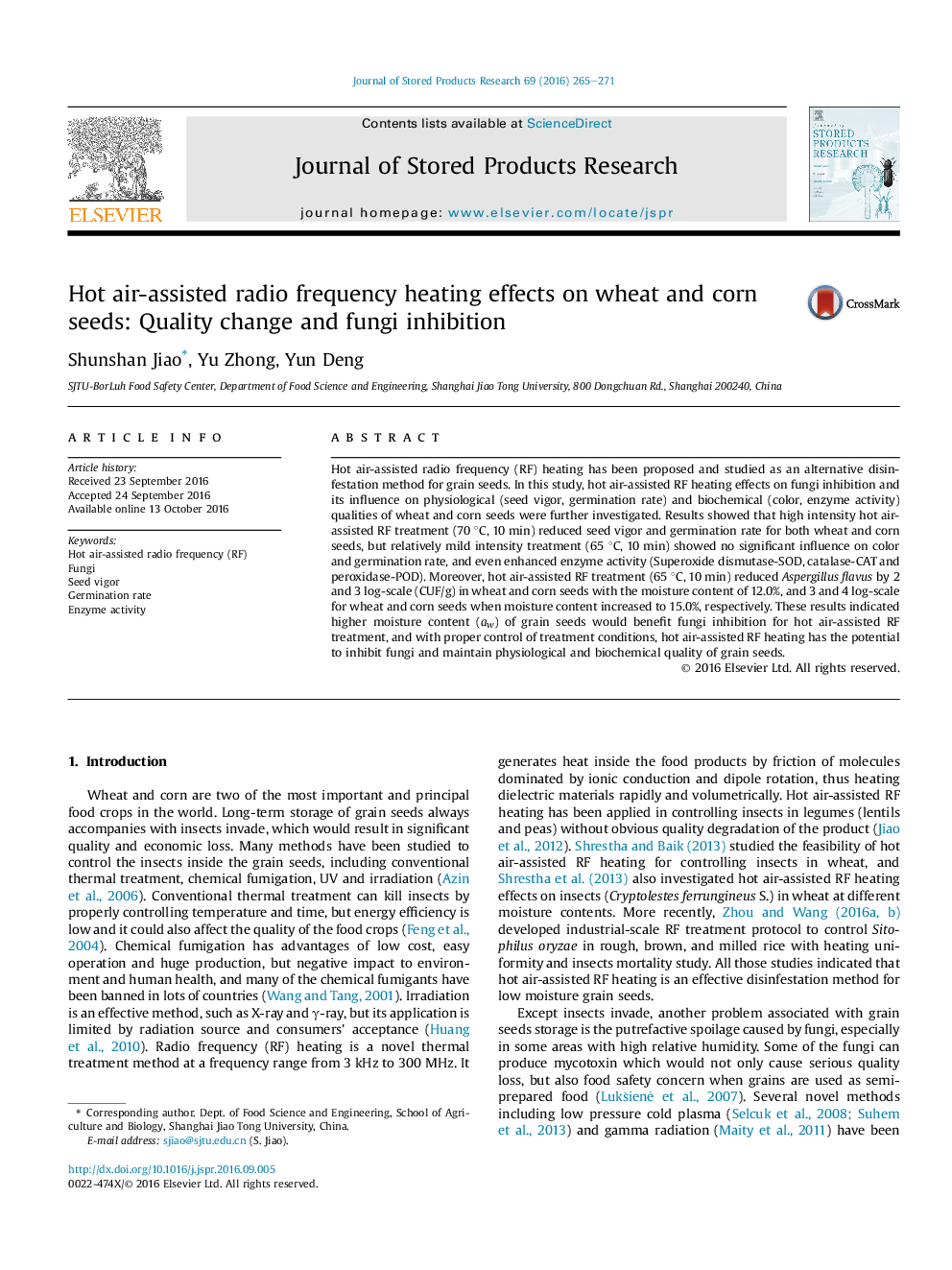| Article ID | Journal | Published Year | Pages | File Type |
|---|---|---|---|---|
| 6378375 | Journal of Stored Products Research | 2016 | 7 Pages |
â¢Hot air-assisted RF heating was applied to inhibit fungi in wheat and corn seeds.â¢Associated physiological and biochemical quality changes were evaluated.â¢Initial moisture content of seeds plays an important role for fungi inhibition.â¢The treatment has potential to inhibit fungi and maintain quality of grain seeds.
Hot air-assisted radio frequency (RF) heating has been proposed and studied as an alternative disinfestation method for grain seeds. In this study, hot air-assisted RF heating effects on fungi inhibition and its influence on physiological (seed vigor, germination rate) and biochemical (color, enzyme activity) qualities of wheat and corn seeds were further investigated. Results showed that high intensity hot air-assisted RF treatment (70 °C, 10 min) reduced seed vigor and germination rate for both wheat and corn seeds, but relatively mild intensity treatment (65 °C, 10 min) showed no significant influence on color and germination rate, and even enhanced enzyme activity (Superoxide dismutase-SOD, catalase-CAT and peroxidase-POD). Moreover, hot air-assisted RF treatment (65 °C, 10 min) reduced Aspergillus flavus by 2 and 3 log-scale (CUF/g) in wheat and corn seeds with the moisture content of 12.0%, and 3 and 4 log-scale for wheat and corn seeds when moisture content increased to 15.0%, respectively. These results indicated higher moisture content (aw) of grain seeds would benefit fungi inhibition for hot air-assisted RF treatment, and with proper control of treatment conditions, hot air-assisted RF heating has the potential to inhibit fungi and maintain physiological and biochemical quality of grain seeds.
